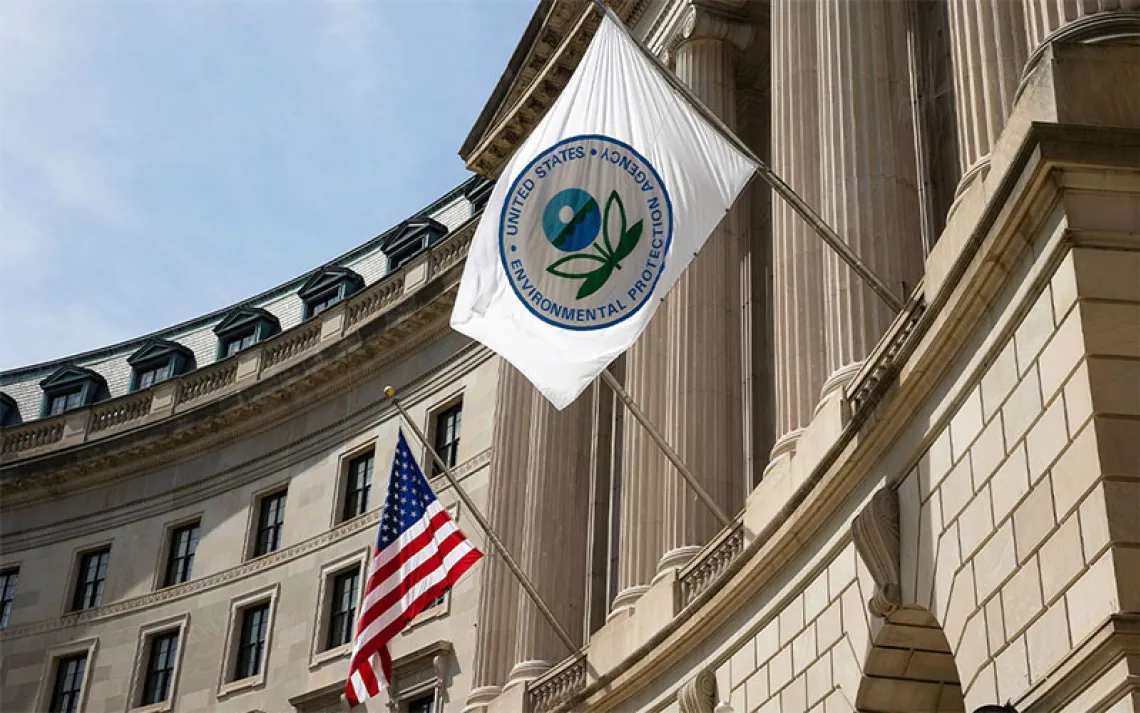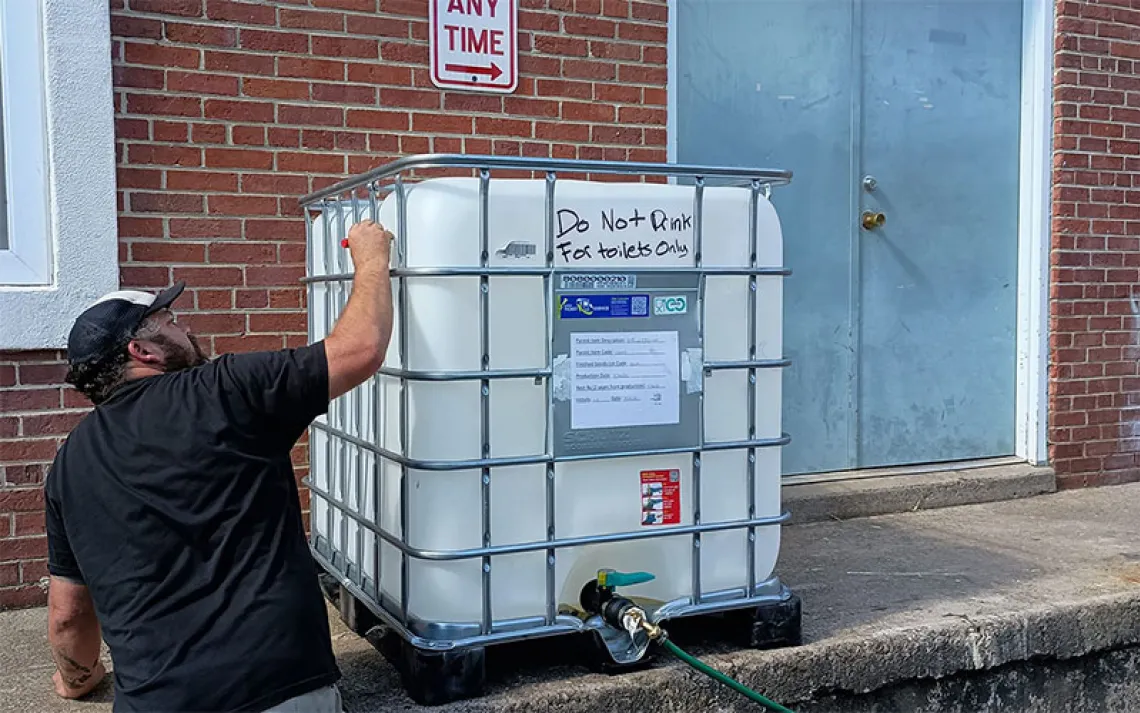The Climate Made Me Do It
The necessity defense is the holy grail of climate action

Photo by iStock|Vladstudioraw
On June 29, 2016, 13 people crawled into a ditch meant for the installation of a controversial high pressure gas pipeline through Boston and temporarily blocked its construction. The court case resulting from that and three other acts of civil disobedience came very close to achieving what has, for years, been the holy grail of climate activism—the successful use of the necessity defense. Or as Bill McKibben, the environmentalist and journalist put it, “Good golly! A few minutes ago a Boston judge acquitted 13 pipeline protesters on the grounds that the climate crisis made it necessary for them to commit civil disobedience. This may be a first in America.”
The necessity defense, which allows someone to argue that they broke the law in order to prevent a greater crime, has been used successfully in medical marijuana cases, by needle exchange groups, and during the lunch counter sit-ins of the civil rights movement, but it’s not easy to use. In most cases of climate-change-related activism, judges have have blocked use of the defense before it ever gets to a jury.
That’s what happened in an earlier trial involving one of the 13, Tim DeChristopher, who infiltrated a Bureau of Land Management auction in 2008 and bid on oil and gas leases on public lands in order to prevent someone else from buying those leases for real. Legally barred from telling the jury why he had bid $1.8 million that he didn’t actually have, in violation of the Federal Onshore Oil and Gas Leasing Reform Act, DeChristopher was sentenced to two years in prison. (He ultimately served 21 months before moving to Boston to attend Harvard Divinity School.)
Even when the necessity defense is allowed, a defendant has to meet a very specific set of conditions:
1) That they were “faced with a choice of evils and chose the lesser evil”
2) That they acted to prevent imminent harm
3) That they anticipated a direct causal relationship between what they did and the harm they were trying to prevent
4) That they had no legal alternatives to violating the law
The 13 Boston lawbreakers had a strong case because several of them had spent significant time trying to stop the pipeline using legal means, as part of a movement organized by Mary Boyle, a West Roxbury resident. Boyle found out about the pipeline in 2014 and began protesting it around the neighborhood—not only because it would exacerbate climate change by providing a financial incentive to produce more fracked gas, but also because she questioned the wisdom of placing a high pressure gas pipeline near West Roxbury Crushed Stone, an active quarry in the neighborhood that uses explosives at least once a week. “People joined me,” Boyle said in a press conference held after the verdict. “It would have been awfully lonely if they hadn’t. And I would have been hardly a ripple in anything.”
Boyle and a group of allies persuaded the city council to pass a resolution against the pipeline. She got the mayor to speak out against it. After some effort she persuaded the state’s two U.S. senators—Elizabeth Warren and Ed Markey—to write a letter stating their opposition to the project. None of it managed to stop the pipeline. Then, in the summer of 2015, Boyle said, “We found out there was something else you could do, and that was civil disobedience. That’s when I met Marla.”
Marla Marcum is a seminary-trained United Methodist with two decades of social justice organizing and training experience and is the director of the Climate Disobedience Center. All told, Marcum said at the press conference, 198 people got arrested protesting the pipeline, not counting solidarity actions in other parts of the country.
The arrests only succeeded in slowing down the pipeline. It turned out that the kind of grassroots resistance that was able to halt Keystone XL for years was less effective when fighting a pipeline that didn’t cross an international boundary. But the core organizers of the protests already had a plan to turn their frustration into a potential precedent. In 2013, two other people in the state came tantalizingly close to establishing a precedent for employing the necessity defense in climate protest cases when they used a lobster boat to block a barge on its way to deliver 40,000 tons of coal to the Brayton Point power plant in Somerset, Massachusetts, and unfurled a banner in front of it that read #coalisstupid.
The two men, Ken Ward and Jay O’Hara, were granted use of the necessity defense. But on the day their trial was supposed to start, they arrived in court to find that the district attorneys had reduced their charges to civil infractions, and would drop charges against both of them if they would agreed to pay $2,000 each for the expense of their arrest. Ward and O’Hara took the deal.
According to DeChristopher, the 13 spent a year and a half preparing their necessity defense—what they would say, and who they would call on to testify. But before the group showed up in court, the district attorney had, as in the lobster boat case, reduced the charges against them from criminal to civil. This meant they were facing a fine, not jail time, and that the 13 weren’t entitled to the jury trial that they had been preparing for.
This also meant that they wouldn’t create the legal precedent that they would have if they had a criminal trial. Across the country, people like Michael Foster in North Dakota have been getting sentenced to jail time for similar acts of civil disobedience, but the court precedent that might give other activists the freedom to tell the jury why would have to wait. Hope shifted to a case in Minnesota, where a state appeals court is considering a necessity defense request by Emily Johnston and Annette Klapstein, two women who shut off valves on a pair of pipelines owned by Enbridge in October 2016.
In the end, the judge gave each of the 13 two minutes to explain why they had tried to stop the gas pipeline through Boston. “I study and teach music that goes back hundreds of years,” Warren Senders said, recapping his testimony outside the courthouse. “When I teach a song that’s 400 years old, it’s with the understanding that 400 years from now someone will be singing that same song. I’m in the middle of a chain of transmission. That distribution of human wisdom across centuries that is one of the great creations of our civilization—a method for people to talk with and communicate with their ancestors and their descendents. And that’s put at risk by climate change.”
After the testimonies, Judge Mary Ann Driscoll of West Roxbury District Court, found all 13 defendants “not responsible,” the equivalent of “not guilty” in a criminal case. At the press conference after the verdict, DeChristopher at least made it clear he was ready for another go-around. “We were able to make a case that was compelling enough for that judge,” said DeChristopher, “and hopefully the next time around we’ll get the opportunity to do that with a jury. It’s the first time I’ve won a necessity defense, so I’m excited. Even if it wasn’t quite the trial I wanted. It’s a good first step, and we’ll keep fighting.”
Editors Note: An earlier draft of this article incorrectly stated that Mary Boyle was one of the 13 defendents. The article has been changed to reflect the fact that Boyle was not one of the protesters who was arrested.
 The Magazine of The Sierra Club
The Magazine of The Sierra Club



